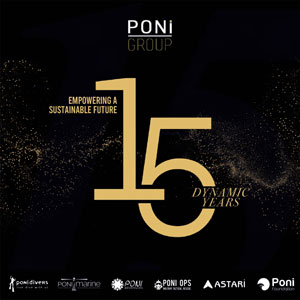Over the past few years, women’s leadership and participation have gained momentum in ASEAN especially in promoting inclusive governance and decision making.
There has been a rising demand for more inclusive and diverse representation of leadership within the region.
Leveraging technology and digital platforms has transformed election campaign strategies, enabling more effective engagement with voters, particularly among the youth.
These were the words co-written by ASEAN Inter-Parliamentary Assembly (AIPA) Secretary-General Ar Siti Rozaimeriyanty binti Dato Seri Laila Jasa Haji Abdul Rahman and United Nations Women Indonesia Representative Jamshed M Kazi who co-authored ‘Turning momentum for women’s empowerment in politics into tangible gains in ASEAN’.
GENDER PARITY
The op-ed noted that youth are important agents of political change in Southeast Asia, calling for more inclusive political participation.
Recent elections have seen a change in voter turnout and a shift in traditional affiliations, led to interesting election outcomes in various countries.
There is a growing openness among citizens to explore alternative options and consider ideas from various political perspectives. The region has also witnessed emergence of new candidates, including young women.


Promoting women’s leadership and political participation is crucial for ASEAN and its member states to achieve transformative change aligned with the ASEAN Community Vision and the 2030 Agenda for Sustainable Development.
It requires more than just increasing female candidates; substantive representation is key to advancing gender equality and inclusive governance. Efforts must focus on connecting women representatives in Parliaments with the region’s critical issues faced by women and girls.
Women leaders should address not only gender equality but also issues like childcare and maternity leave, while engaging in strategic priorities from peace and security to economic growth and environmental sustainability.
Moreover, they believe that to advance gender equality in policies and law-making, governments, research institutions, and civil society, including Parliamentarians, must enhance their capacity for gender analysis and responses. This requires sustained investments beyond short-term funding cycles, particularly in education, employment, safety, and independence for women.
Without tangible progress in these areas, women and girls will continue to face limited opportunities compared to men, hindering their contributions to peace and prosperity.
Achieving gender parity in Parliament also necessitates support from male champions and leaders to create a safer environment for women in politics. Policies must be implemented to make Parliament more conducive for women leaders, fostering gender and social norm change.
Ultimately, enabling women to share their perspectives and play meaningful roles in addressing pressing issues like climate change, peace and social equity is crucial.
PILLARS OF ACTION
The Women Parliamentarians of AIPA (WAIPA) are spearheading efforts to promote women’s political participation and leadership across ASEAN. The recently concluded 3rd WAIPA Coordinating Committee Meeting paved the way for the adoption of a Plan of Action at the 45th AIPA General Assembly in October 2024.
The plan of action focuses on three pillars: creating an enabling environment for women in politics, empowering women leaders, and ensuring gender-responsive decision-making. It outlines specific activities to be implemented regionally and within AIPA Member Parliaments from 2024 to 2030.
Several implementation activities are focused on engaging women with diverse backgrounds, including women with disabilities, and addressing barriers and challenges faced by women in politics.
In promoting gender-responsive Parliaments, the AIPA Member Parliaments aim to advocate for, raise awareness of the value of gender-responsive Parliaments, including providing budget allocation for training and capacity building of Parliamentary staff to enhance understanding of the concept and its associated challenges.
In empowering women in politics, the Plan goes beyond trainings and developing toolkits; it also aims to strengthen the capacity of women Parliamentarians.
It also aims to build regional networks among women Parliamentary caucuses, and channels of engagement to connect women leaders in Parliament with the aspiring young leaders including young women leaders, fostering inter-generational collaborations.
Lastly, WAIPA leverages its regional standing and includes in this Plan of Action regional mechanism for the exchange of knowledge and good practices, also the development of regional knowledge products, guidelines, tools and KPIs (key performance indicators) to support the implementation of gender-responsive policy and legislation.
PROMISING ACTION
It is promising to envision the potential impact of the forthcoming WAIPA Plan of Action in advancing women’s empowerment in Parliaments of Southeast Asia, aligning with ASEAN frameworks like the ASEAN Regional Plan of Action on Women, Peace, and Security, among others, spanning until 2030.
This will amplify the importance of women’s leadership and participation in decision-making on key regional priorities, including supporting ASEAN as a region in accelerating the achievement of the ASEAN Community Vision and the United Nations Sustainable Development Goals for all. – Izah Azahari







